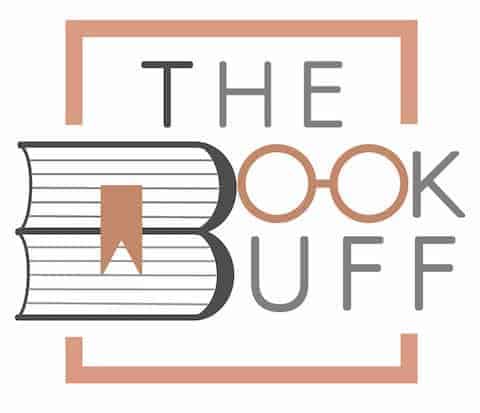Kindle vs Phone: Which is Better for Reading Books?
Disclosure: This post may contain affiliate links. – meaning I may get a commission if you decide to purchase through my links, at no additional cost to you.
“I bought a Kindle,” says your friend, filled with unexplained excitement. When you ask what it’s for, you’re told it is an ebook reader. But isn’t that what smartphones do?
If Kindle readers seem like rotary phones in the age of the iPhone, you might want to know more about what sets the e-reader apart.
Kindle is better for reading books compared to a phone because Kindle is dedicated to reading. There are fewer distractions within the Kindle device, and it features a screen that mimics paper, so you don’t incur similar levels of vision damage as prolonged exposure to a smartphone screen.
In this article, you will learn more about Kindle readers and smartphones for reading ebooks, including whether you can buy books on the Kindle store to read them exclusively on your smartphone.
You’ll also discover the five advantages of e-readers over smartphones and the context in which phones come out ahead. Finally, you’ll discover the steps to read a Kindle ebook on your phone.
But first, let’s explore how Kindle books became less exclusive to readers and open to the general digital ecosystem.
Pro-Tip! If you decide to read on a Kindle, make sure you check out the latest prices for all versions of Kindle on Amazon! [If you’re not sure which one to buy, I’d recommend choosing Kindle Paperwhite!]
Can You Read Kindle Books Without a Kindle?

You can read Kindle books without a Kindle by using the Kindle app, which is available on the Google Playstore and the App Store for modern android and iOS devices, respectively.
It is also possible to read Kindle books on a laptop by using the desktop Kindle app or Amazon’s Kindle Cloud Reader [Note – check out my other article on how to read Kindle books without a Kindle for a full guide!].
The term “Kindle books” is loosely associated with Kindle devices and, more specifically, with the Kindle store. Initially, Amazon’s Kindle e-ink readers sparked a revolution in digital book reading by making ebook-reading easier on the eyes.
Since then, the Kindle brand has expanded to encompass Kindle Direct Publishing, The Kindle App, and Amazon Kindle store. Remember, initially, Amazon itself was the “Kindle store” in which there was a digital book store.
The term isn’t exclusive to e-readers, the fact that a book is called a Kindle book doesn’t mean that it can be read-only on Amazon’s e-reader.
When a book is labeled a “Kindle title,” it simply means that the book is in one of the Kindle formats and is meant to be read within the Kindle software ecosystem.
There are ways to read Kindle books even without the app, which I have expanded upon in my article on how to transfer Kindle ebooks.
Is Reading on Kindle Better Than on Smartphone?
Reading on Kindle is better than on a smartphone in terms of eyesight preservation. Kindles use e-ink, which means the screen mimics paper wherein it has limited backlight. This allows you to read for hours without having dry eyes, irritation, or eyesight damage.
But if “better” to you means convenient, a Smartphone is better. You might not want to lug around a large tablet just to read books when you can sneak a quick reading session on your smartphone.
Kindle’s superiority is exclusive to a few avenues with a debate around each except for the eyesight advantage.
There’s a consensus around the fact that digital ink is better for one’s eyesight than the smartphone screen. Perhaps that’s why the first Kindle e-reader sold out within 6 hours of its launch.
Why Use Kindle Over a Smart Phone for Reading?
Now that we’ve briefly covered the key differentiator that sets Kindles apart from other digital devices like smartphones, it is time to dive deeper into the e-reader’s advantages.
Here are the five reasons you have to have a Kindle despite having a smartphone.
1. Digital Ink is Easier on the Eyes
Backlight contains a disproportionate amount of UV rays that aren’t mellowed out by reflection. Whereas a digital ink screen mimics paper, so you read via light that reflects off the Kindle’s screen.
There’s really no debate around this: digital ink wins as the better among the two modes of reading.
Please note that Amazon Fire tablets are sometimes called “Kindle Fire,” but they are not Kindle readers featuring digital ink. They’re classic tablets not too different from the iPad and Android tablets. This advantage doesn’t apply to Fire tablets.
2. Kindle’s Digital Ink is Better for Learning
90% of the 685 teachers surveyed by the IDC believe that digital ink helps students learn better in the classroom. However, the study was in the context of using e-ink to draw, take notes, and write, so this advantage can be argued.
Digital ink is better for learning in the sense that it allows for irritation-free engagement, which can lead to longer reading sessions. If you read from a Kindle or from a smartphone for the same period with the same focus, the difference in how much you learn wouldn’t be noticeable.
That scenario is impossible to conjure up, though, because smartphones aren’t built for focus. They’re built for connectivity, which brings us to the third advantage.
3. Kindles are Geared Towards Focused Reading
While Kindles fly off the shelves because of their e-ink, there is a huge demand for reading tablets that have a standard backlit display, because digital readers put much-needed constraints that allow us to focus.
If you’re the type of focused reader who forgets to eat when binging your favorite novel series, you might not need a Kindle, but most people need to tune out the world to avoid being pulled away from the reader.
From the most popular sitcoms to the most played songs, people enjoy whatever’s the easiest to consume. Books are pretty low in that hierarchy because one has to actively invest energy to get entertained, which explains the popularity of audiobooks.
When your brain is seeking the path of least resistance for entertainment, but you want to read books, you should use a Kindle to block out the noise.
4. Kindle Prevents Accidental Deletion
This is an advantage of Kindle readers that crosses over to the Kindle app to some extent, but most smartphone PDF readers aren’t reliable in their progressive saving capacity.
Whenever your phone’s memory is overloaded by the session activity, the caches might automatically clear, and you’d have to hop around the book to figure out where you left off.
Kindle Readers are dedicated to reading, which allows you to preserve the books. Even when you delete the offline copy, the cloud copy and your progress both remain saved so you can pick up right where you stopped.
Resuming reading can sometimes be a challenge, and you don’t want to give yourself a reason to skip reading. “I don’t even know where I left,” is a convenient excuse your smartphone will give you alongside, “I think I deleted the pdf.”
5. Kindle Readers Send Better Social Signals
Finally, Kindle readers have gained acceptability as the digital book-reading standard.
If you’re on your smartphone, someone might find it okay to disturb you, ask questions, or try to make small talk. This is because they might think you’re scrolling Facebook or Instagram.
With a Kindle, people know that you’re engaged in a deeper focused activity, and you’re less likely to get interrupted or judged.
When to Use Smartphone for Reading Over Kindle?

The fact that Amazon keeps upgrading the Kindle ebook store’s compatibility with devices aside from Kindle implies that there’s room for other devices like smartphones to be the better option for a sizable portion of Amazon’s customer base.
Kindle isn’t the best in all situations. In some scenarios, it is better to use a smartphone.
Here are a few of those:
- You want to read on the go – While travel-friendly Kindles are available, they are one more piece of technology to drag around. If you’re on a vacation where reading will not be the bulk of what you do, using your smartphone is fine.
- You read 30 minutes a day – Reading this much on a smartphone is possible with focus mode (or reading mode). Given that the average maximum focus is around 1 hour, a device that shuts out the rest of the world isn’t needed.
- You want to read a few pages quickly – If you read smaller chunks in a larger frequency, a smartphone can help. It is even better if you have a Kindle e-reader and a phone with the Kindle app so you can keep picking up where you left regardless of the device.
How to Use Your Smartphone for Reading Kindle Books?
As mentioned above, you can actually pick up reading on your phone wherever you left reading on your Kindle, provided you continue reading within the Kindle ecosystem. Follow these steps to get started with Kindle on your phone.
- Go to your phone’s application store – If you have an android phone, you’ll need to go to the Playstore. For iPhone, this will be the App Store.
- Search “Kindle” – This term will lead you to the Amazon Kindle app. Be careful not to download the wrong app, as knock-offs might appear as ads above the actual search results. Get the app that is published by Amazon.
- Create an account or log in – When you open the app, you’ll be prompted to sign in or sign up. If you have an Amazon account, you should log in with those details. In case you don’t, you’ll signup for one at this stage.
- Buy Kindle books on Amazon and start reading – Search the books you want on Amazon and get the ebook version. Every ebook purchase will become automatically available on your Kindle app library.
More Related Articles
- Is Kindle Still Worth It? [User’s Honest Review!]
- How Many Books Can a Kindle Hold? [8GB vs 32GB]
- Kindle vs Tablet: Which One Should You Buy for Reading?
- How Long Does a Kindle Last? [A User’s Experience!]
- Does Kindle Work Without Wi-Fi? [Everything You Need to Know!]
- Are Kindle Books Cheaper Than Physical Books? [Here’s What You Need to Know!]

About the Author
Akansha is a former business journalist and a seasoned communications professional. She is the founder of TheBookBuff, an avid storyteller, and a lifelong biblophile! Check out her profile page to know more about Akansha.

![Does Kindle Unlimited Include All Books? [Full Guide!]](https://thebookbuff.com/wp-content/uploads/2022/09/aliis-sinisalu-yzVxz_OYVxU-unsplash-300x225.webp)


![How Fast Should You Read a Book? [A Complete Guide!]](https://thebookbuff.com/wp-content/uploads/2021/10/relaxing-reading-book-G82P24K-optimized-300x196.webp)

![How Long Does a Kindle Last? [A User’s Experience!]](https://thebookbuff.com/wp-content/uploads/2022/06/Kindle-300x200.webp)